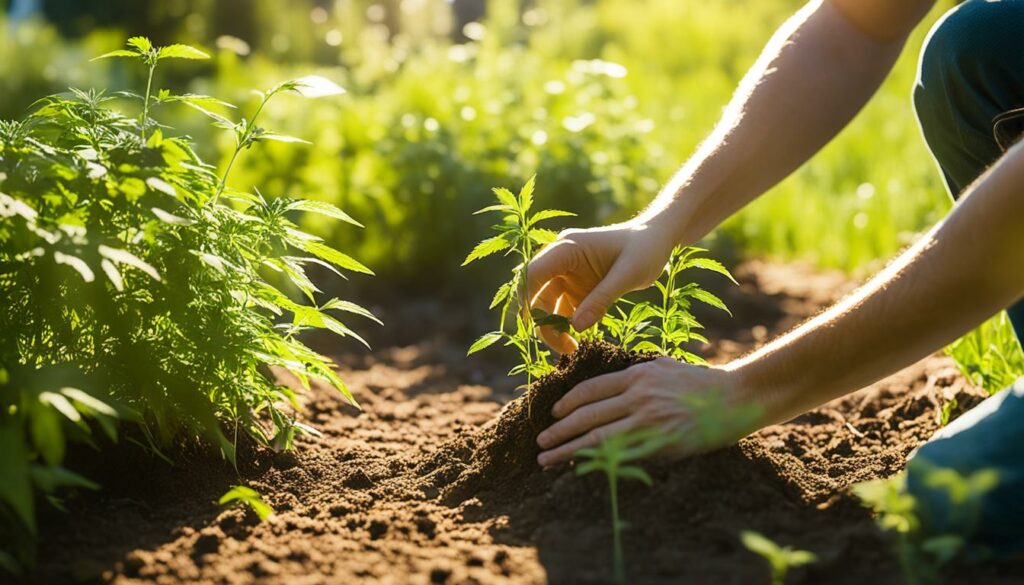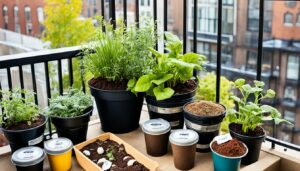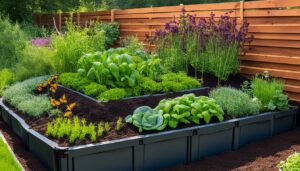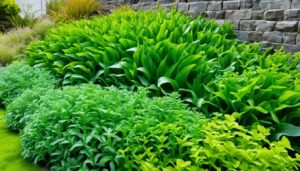Fingers submerged in the soil, the gentle tug on a stubborn root, the sound of nature’s breath rustling through leaves—gardening is not merely an act of cultivating the earth; it is a practice ripe with moments of profound peace and introspection. In today’s fast-paced world, we often overlook the simple, grounding tasks that provide solace for the soul. Yet, herein lies the subtle art of zen garden therapy—the tranquility that weaves through the motion of weeding, the careful observation inherent in mindful landscaping techniques, the slow, deliberate movements that hallmark meditative garden care. This is where mindfulness in gardening transforms a habitual chore into a sanctuary of self-discovery and calm.
Imagine this: each weed pulled brings you closer to the present, each breath synchronized with nature’s rhythm. Amidst the palette of greens and browns, your garden becomes a canvas of meditation, a physical space where the mind can wander and yet remain fully anchored. As we embark on this path of weeding as wellness, let us explore how the convergence of patience and presence can bloom into the most nourishing of personal therapies.
Key Takeaways
- Mindful weeding turns the routine task of garden maintenance into a reflective and serene experience.
- Practicing zen garden therapy involves embracing a meditative mindset to find harmony within the natural world.
- Adopting mindful landscaping techniques promotes mental clarity and emotional tranquility.
- Meditative garden care is not just about aesthetics but also about forming a deeper connection with our environment.
- Mindfulness in gardening brings attention to the beauty and lessons inherent in the cycle of growth and decay.
- By focusing on the moment, gardeners experience a state of ‘weeding bliss’ characterized by peace and contentment.
Embracing the Zen of Gardening: More Than Just Removing Weeds
The art of zen gardening practices is a tapestry woven with the threads of garden maintenance meditation and mindful gardening. It is an approach that goes far beyond the rudimentary task of weed removal, inviting gardeners to partake in a journey of self-discovery and environmental respect. Subscribing to a routine of tranquil garden maintenance does not merely enhance the visual appeal of a garden but fosters a serene atmosphere conducive to personal growth.
In the throes of pulling weeds, one can find a rhythm that transcends the mundane, aligning with the heartbeat of nature itself. To remove a dandelion or trim back a vine is to engage in a dance with life’s undulating pace. This botanical ballet, when performed with mindfulness, engenders a soothing silence within the mind, quieting the cacophony of daily stresses.
Consider jewelweed and white clover, often branded as nuisances in the garden; these plants support and nourish local wildlife, including the industrious bees and the flitting hummingbirds. To appreciate their role is to invite biodiversity, turning your garden into a sanctuary teeming with life. Herein lies the essence of mindful gardening—to see the garden as a living entity, complete with its unique imperfections and beauty.
| Weed | Benefit to Wildlife | Role in Ecosystem |
|---|---|---|
| Jewelweed | Attracts hummingbirds | Prevents soil erosion |
| White Clover | Provides forage for bees | Fixes nitrogen in the soil |
Embrace the present, tending to your garden with the meditative poise of a monk contemplating a Zen rock garden. Let your movements be deliberate and your mind open; allow the act of gardening to be a meditative passage leading to inner peace and outer prosperity. For it is within this practice that one harvests not just the fruits of the earth but also the tranquility of the soul.
Mindful Weeding, Garden Maintenance Meditation, Zen Gardening Practices
By infusing garden maintenance with mindfulness, weeding can become an enriching meditative practice rather than a mundane task. Exploring zen gardening practices cultivates a space of mental serenity and physical engagement, unlocking a deeper connection with the natural world.
Discovering Weeding Bliss through Mindfulness
Embracing mindful weeding is the crux of turning garden chores into a form of zen garden therapy. Engaging the senses and the present moment during garden maintenance meditation transcends the task at hand into a practice of tranquility and reflection.
Essential Tools for Mindful Garden Care
Incorporating mindful landscaping techniques means selecting the proper tools for the job. A well-designed Cape Cod weeder or a sturdy claw turns the physical act of weeding into an efficient and gratifying experience, compatible with meditative garden care.
Garden ‘Weeds’: Understanding Their Role and Purpose
Mindfulness in gardening involves recognizing that what we commonly refer to as weeds can have beneficial roles in our gardens. By applying mindful weeding, we learn to appreciate the symbiotic relationships these plants share with our environment and wildlife.
Weed Identification: The First Step towards Tranquil Garden Maintenance
Understanding the variety of garden interlopers is vital for maintaining a peaceful atmosphere. Knowledge of annual, biennial, and perennial weeds adds depth to the practice of zen gardening practices, turning garden care into a thoughtful process where tranquility meets action.

| Tool | Use | Benefits |
|---|---|---|
| Cape Cod Weeder | Weeding tight spaces | Provides precision and reduces strain |
| Claw | Turning soil, removing roots | Enhances aeration, facilitates root removal |
| Garden Hoe | Cultivating surface soil | Effectively cuts through soil crust, aiding in weed management |
- Mindfulness in gardening lowers stress and cultivates patience.
- Regular practice can lead to a unique form of garden maintenance meditation.
- Achievement of tranquility in garden maintenance enhances overall well-being.
Conclusion
In today’s swift currents of life, the art of mindful weeding anchors us, allowing the simplicity of pulling weeds to transform into an act of garden maintenance meditation. This facet of zen gardening practices invites us to slow down, to breathe, and to engage with our environment in a manner that transcends the traditional toil associated with garden upkeep. It cultivates a conscious presence, prompting gardeners to not only tend to their plants but to their inner peace as well.
Through mindful gardening techniques, our gardens become more than a showcase of botanical beauty; they evolve into sanctuaries of stillness and reflection. Each pull of a weed is not merely a tug at the roots but a pull towards personal growth, intertwining the well-being of our green spaces with the wellness of our state of mind. It’s an empowering journey, transforming every sweep of the hoe or slice of the trowel into seamless strokes of tranquility.
The philosophy of zen gardening practices embraces the notion that every aspect of the garden has its place, including the so-called weeds. It’s a recognition of the intricate web that is our ecosystem and our role within it as caretakers and observers. By incorporating mindful weeding and gardening maintenance meditation into our routines, we step into a realm where gardening is not just an act of nurture, but a means to nourish our souls against the backdrop of nature’s rhythm.








